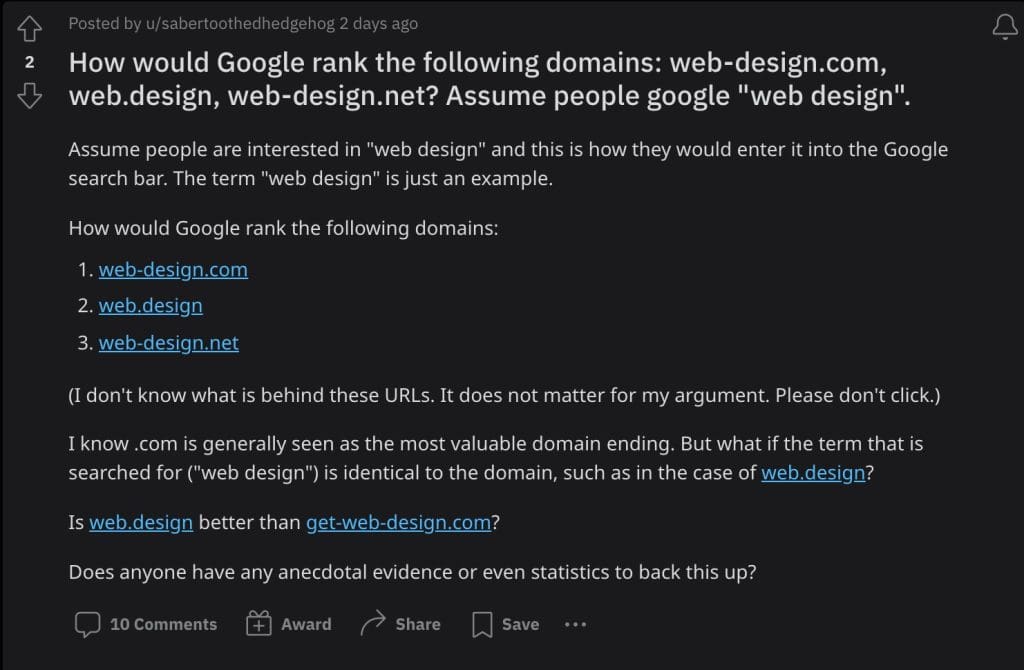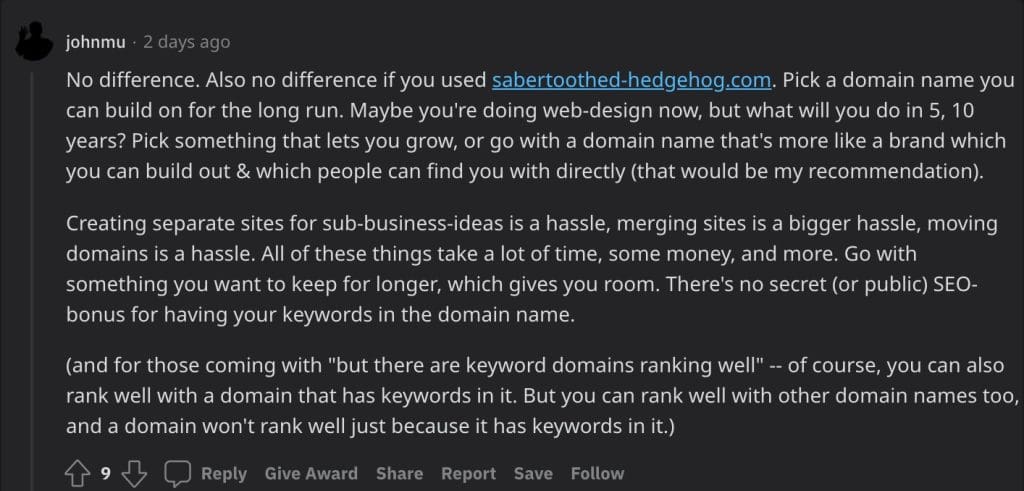(SEO This Week – February 17, 2022) – It’s not often that we find a single social media post that asks results in so many opportunities to look at different aspects of search engine optimization. It’s even less likely that we find one that a Google Search Advocate has commented on. But thanks to some research and a little bit of patience, found one we did.
John Mueller makes a habit of using Reddit for his own personal interests, but from time to time you do find the Google rep answering questions in subreddits. It doesn’t happen often, guy’s gotta have a personal life after all, but when it does it’s good to hear his perspective on things we need to test or things that have already been tested.
In this case, the original poster asked if there was a difference in domain TLDs.

So this question is more about the power of TLDs and if the selection of one over another could potentially have an impact on search engine optimization. And it’s an interesting one indeed.
It’s interesting because there has been the implication that Google doesn’t care about the TLD that is used and Search Advocates at Google have said that all TLDs are able to rank in the search engine. That’s true.
They’ve also said that Google’s algorithm doesn’t favor one TLD over another. That’s not true, at least that’s what testing has shown.
In early 2020, in conjunction with Bill Hartzer, the SEOIntel team conducted a test to see if Google’s algo favored one TLD over another, and the results were clear.

All other things being equal, Google clearly showed a preference for .net. So yes, your selection of a top-level domain (TLD) is an important decision. As a point of note, these were the TLDs tested.
- .ICU
- .TOP
- .XYZ
- .SITE
- .CLUB
- .ONLINE
- .VIP
- .COM
- .NET
- .ORG
- .DE
- .CO.UK
- .CO
- .LONDON
- .IN
As you can see in the image, some of those TLDs didn’t even index well, much less rank. You can read a summary of the full test on Bill’s website, you can also download the full report with an opt-in.
John Mu Not Answering The Question, but Raising More

I don’t know if you’ve ever noticed this, but SEOs tend to answer questions with either hazy reply’s or totally ignore the question and offer some random insight they think you should be more worried about versus actually answering your question. SEOsplaining.
John’s not immune to doing it either, as is the case in his reply.
John neither confirmed nor denied that TLD choice mattered in rankings. Instead, he chose to focus on the keyword example the poster used and summarized that a business owner shouldn’t select a domain name with a keyword in it because having a keyword in your domain name doesn’t matter.
He even headed off my counterargument that a simple search, especially in local, can show that domains with keywords in the domain name, partial or exact match, are often found high in the search results. If you’re a Bing user, it seems to be even more important over there.
SEOIntel has conducted several tests on exact match and partial match domains, and when all other things are equal, Google always preferred the EMD or PMD over branded domain names.
The real thing a business owner needs to decide is if selecting an EMD for your company website, is the EMD something you can live with. And, does the added ranking benefit of having one outway the benefits of having a branded domain name?
If the answer is yes, then get the EMD and give yourself a bit of the obvious benefit Google and Bing are giving to keywords in domains.

